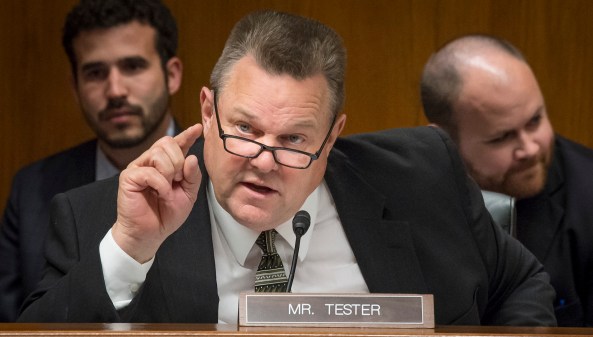Trump signs Modernizing Government Technology Act into law

The highly anticipated legislation to modernize the federal government’s aging information technology infrastructure is now law.
President Donald Trump codified the Modernizing Government Technology Act on Tuesday when he signed the 2018 National Defense Authorization Act. The IT legislation was attached as an amendment to the defense authorization bill.
The move fulfills a year-plus effort to pass the legislation, which allows federal agencies to reprogram unused IT budget allocation to fund future modernization projects.
Industry stakeholders eager to collaborate with agencies on the technological lift applauded the new law.
“The Modernizing Government Technology Act is an important step in the journey to a next-gen federal government,” CSRA President and CEO Larry Prior said in a statement. “The MGT gives agencies more resources to modernize, helping to enable moving to the cloud, implementing shared services, and improving their cyber defenses.”
The MGT Act began as a September 2016 compromise, combining Texas Republican Rep. Will Hurd’s Modernizing Outdated and Vulnerable Equipment and Information Technology — or MOVE IT — Act with the Information Technology Modernization Act from Rep. Steny Hoyer, D-Md., into a single bill.
The bill took Hurd’s plan to create individual accounts for the 24 CFO Act agencies that would be populated by reprogrammed budget monies and combined it with Hoyer’s proposal for a central fund for larger projects. The single legislative package quickly drew bipartisan support.
While the MGT Act passed the House in its first run in late 2016, it was stopped cold in the Senate after the Congressional Budget Office gave the bill at a $9 billion price tag.
Hurd recrafted the House version of the bill in April to bring the cost down to $500 million, again winning support from his chamber.
Sens. Jerry Moran, R-Kan., and Tom Udall, D-N.M., tacked their Senate-version of the bill onto the NDAA in August, increasing its chances of passage by tying it to what is commonly seen as a must-pass piece of legislation.
Following negotiations, both houses passed the NDAA in November, sending it to the president’s desk.
“I applaud the administration and my colleagues on both sides of the aisle for their tireless work to get this legislation signed into law and to bring our inefficient, outdated federal IT system into the 21st century,” Moran said in a statement.
“The improved efficiencies from the MGT Act will empower agencies to modernize their legacy IT systems, better protect our data from cyber-attacks and ultimately save billions in taxpayer dollars by reducing long-term spending.”
The MGT Act has long had broad appeal on Capitol Hill and was seen as a major piece of the White House’s strategy to modernize the federal government’s technology infrastructure.
As far back as October, acting Federal CIO Margie Graves said the administration was actively preparing to implement the MGT Act when it became law, telling agencies to begin inventorying the systems most in need of an upgrade.
“In order to do that, we’ve asked agencies for the last several years to start looking at their high-value assets to understand which ones are the ones that need to be protected most effectively and to make sure that those are in the best cyber posture possible,” she said at FedScoop’s CyberTalks event in October.





